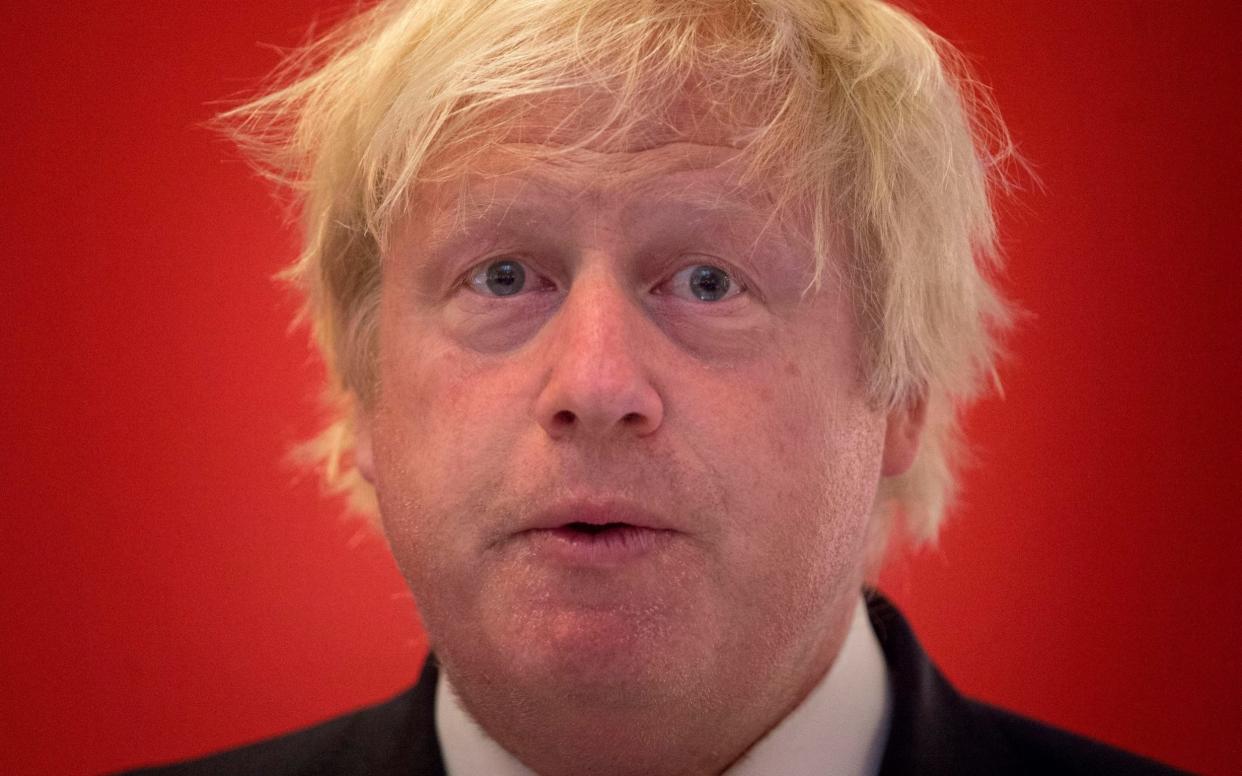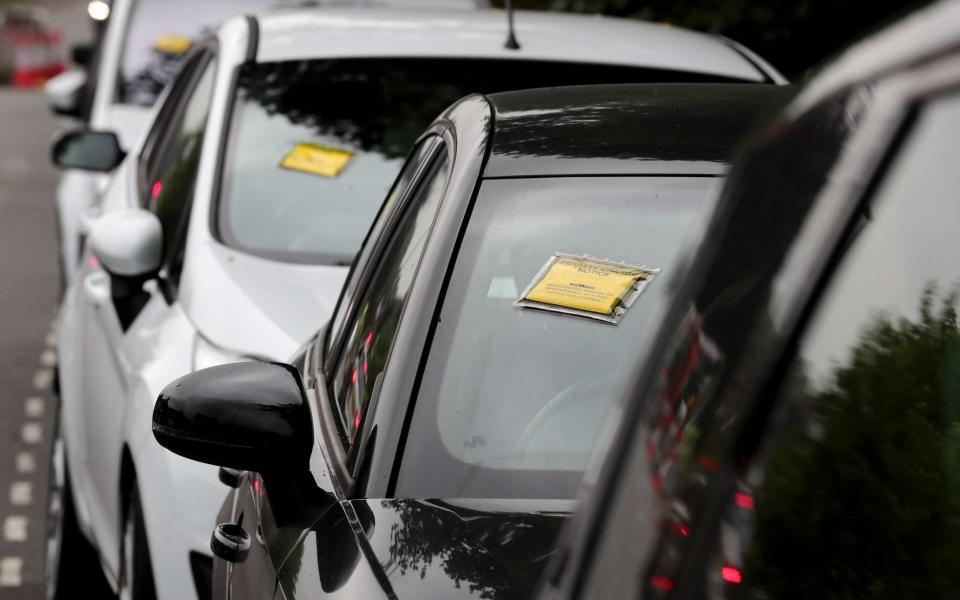Letters: The Prime Minister should avoid a war of words with care homes

SIR – I am disappointed by the Prime Minister’s suggestion that care homes have fuelled the spread of Covid-19 by failing to follow the correct procedures (report, July 7).
My wife has been in a nursing home for the last 12 months. Its rating from the Care Quality Commission is outstanding. I have been in daily contact with the management and staff during the pandemic, and seen the efficiency with which they have carried out their roles – often at great risk to themselves and their families.
I have also followed the Government’s announcements to the nation. These have often lacked direction. My impression is that politicians were late in identifying the facts, and late in giving guidance to care homes. The Prime Minister should not try to pass the blame.
Rev Canon Brian Hails
Sunderland
SIR – The Prime Minister is receiving criticism for his comments about care homes, but he has a point. At the care home close to where we live, a number of staff flatly refused to be tested and could be seen regularly leaving for home in their work clothes..
It doesn’t take much more than that to exacerbate the situation.
Leonard Harper
Ayr
SIR – Many of our care homes are privately owned. The proprietors charge high fees and make large profits.
It is the responsibility of those running such homes to procure the appropriate equipment for the staff and to ensure that all correct procedures are followed.
It is too easy to blame the Government for every shortcoming. Where care homes are concerned, the Prime Minister has nothing for which he needs to apologise.
David Kidd
Petersfield, Hampshire
SIR – The Government has given an unparalleled amount of money to adult social care in the last 20 weeks – but because it has delivered this via local authorities, bureaucracy has got in the way. In a number of cases, local authorities have refused to give the money directly to care providers.
Localism is an ineffective means of supplying money in a crisis: it is ridiculous to allow more than 300 authorities to deliver this money in their own ways, with different hurdles to jump.
If we are to have a second wave, the Government must get a grip to ensure that frontline care is prioritised. Under the Infection Control Fund for care homes, for instance, providers have been at liberty to build bicycle racks but not reimburse PPE or labour costs. Furthermore, the Care Quality Commission has continued to bill care providers when it did little or nothing to help oversee the regulatory process. A bonfire of quangos may be in order.
Professor Martin Green
Chief Executive, Care England
London E17
Theatres must reopen

SIR – Your Leading Article (July 6) paper highlighted the mixed messages being sent to the arts by the Government.
The £1.57 billion support package will barely keep the wolf from the door for a few more months (for those who receive it). Only by reopening now and rebuilding audiences will our vibrant arts sector – and large and small venues across the country – thrive.
Theatres are full of creative people who can adapt works to suit the environments they are in – probably with no more risk to audiences, performers and staff than travelling in a train or plane, going to the pub or visiting a restaurant.
In Shakespeare’s day, a plague meant that just a handful of London playhouses were closed for a short time. Now it seems we might lose the name of action and visit a plague on all our houses.
Andrew Straw
Treasurer, The Space Theatre
London E14
SIR – With the Government’s pledge to support arts and heritage, one trusts that “heritage” will involve maintaining statues, rather than tearing them down.
George Kelly
Maids Moreton, Buckinghamshire
Only following orders
SIR – Last week my wife came off her bicycle, injuring her knee and spraining both wrists. In the immediate aftermath, in shock and on the ground with her heavy bicycle on top of her, she asked a young couple sitting on a bench a few yards away for help. They refused, saying that they didn’t want to catch anything.
What in earth is happening to our society? If my wife had been more seriously injured, what might the outcome have been?
Philip Hays-Nowak
Cambridge
Parking firm fines

SIR – I am one of those who has fallen prey to the sharp practice of a private parking firm (report, July 6).
I’d entered one digit of my registration number erroneously when buying my ticket. The company wrote to me within a week, imposing a £100 fine, reduced to £60 if paid immediately. I wrote back pointing out the circumstances: it was pouring with rain, my glasses were steaming up and I was inputting characters on an Alpha keyboard (not the usual Qwerty).
Back came a heavy letter. The fact that the company had my £8 parking charge (shown on my debit card statement) made no difference. I finally cut my losses in battling the company when the costs reached £170.
The maze-like appeals procedure is, from the outset, weighed against the driver. The company operates anonymously behind a box number, with no names or contact points appearing anywhere on its website or letterheads. The word “unpleasant” doesn’t begin to describe it.
Gordon Casely
Crathes, Kincardineshire
Unsung heroes
SIR – We are all grateful for those in the NHS who have worked tirelessly throughout this difficult time – but there are others who deserve to be recognised.
Our bin men have called each week without fail and we rarely see them. Supermarket staff have been there, too, for essential food.
A big thank you from me. I hope they know they are appreciated.
Val Mills
Stourport-on-Severn, Worcestershire
Standing up to China
SIR – The veiled threats from the Chinese ambassador regarding British “interference” in Hong Kong are further evidence that we should no longer be dealing so closely with this regime.
Not only is China now the major manufacturer of the world – in itself a worry, as this means it can squeeze our economy – but it also leads the way in destabilisation, manipulation and outright aggression.
The United Nations seems unable to do anything about the Uighur crisis, the India incursion, the secrecy surrounding Covid-19 or the aggressive acts in the South China Sea and Hong Kong. How much longer is the world going to allow this to go on?
It is surely time to stand up to this bully. If we don’t we will regret it.
John Hall
Malmesbury, Wiltshire
Working animals

SIR – You report (July 5) that products for which trained monkeys were used to harvest coconuts will be banned from British supermarkets, prompting readers to ask whether working oxen and horses should now be banned as well (Letters, July 6).
It is worth noting that most working animals (equids, cattle, dogs) have been bred for service, and are genetically and temperamentally different from their wild counterparts.
Macaques used to harvest coconuts are wild animals. Most were captured from the forest as youngsters and trained under duress. Captive elephants are the same.
Belinda Stewart-Cox
Warminster, Wiltshire
Plastic-packed salons

SIR – On Saturday, I went to the hairdresser’s.
On arrival, I was presented with a plastic bag containing one mask, two aprons, one pair of gloves and one shoulder-guard. Apart from the mask, every item was made from plastic. Nobody could tell me whether or not it was biodegradable, and all of it was binned after use.
I then sat, separated by a plastic screen, two metres from the only other customer. No tea was served. I paid from behind another screen.
Apart from the question of how long salons can survive like this, there’s the serious issue of untold tons of plastic waste. I left looking better but feeling much worse.
Veronica Timperley
London W1
The cat that made history with its own pet name

SIR – You report (July 4) that the first ever British pet to have a name was a cat named Mite, in the 13th century.
However, this poem (translated by Robin Flower and abridged by me) was written earlier, in the ninth-century, by an Irish monk at Reichenau, Germany:
I and Pangur Ban my cat,
’Tis a like task we are at;
Hunting mice is his delight,
Hunting words I sit all night…….
’Tis a merry thing to see
At our tasks how glad are we,
When at home we sit and find
Entertainment to our mind …….
’Gainst the wall he sets his eye,
Full and fierce and sharp and sly;
’Gainst the wall of knowledge I
All my little wisdom try …….
So in peace our tasks we ply,
Pangur Ban, my cat, and I;
In our arts we find our bliss
I have mine and he has his.’
(From Poems and Translations by Robin Flower)
Richard Hayward
Litlington, East Sussex
GPs have been left out of the testing process

SIR – To accuse GPs of “abandoning” patients and not taking their symptoms seriously (report, July 4) is grossly unfair.
GPs cannot carry out tests for Covid-19 because they are not part of the testing process. However, the Royal College of General Practitioners has led the calls for GPs to be able to arrange tests, as they would for other conditions, and for results to be automatically uploaded to GP records, both to minimise the spread of the virus and so that we can help patients to plan their recovery.
It has been business as usual in general practice throughout the pandemic, with GPs delivering care to patients with Covid-19 and those with other conditions, as well as carrying on with preventive work such as the childhood vaccination programme.
Our new ways of remote working have enabled GPs and our teams to continue delivering the vast majority of NHS patient contacts, thereby preventing the rest of the health service from being overwhelmed.
GPs are well aware of the long-term effects of the virus – mental, emotional and physical – and will be at the forefront of helping patients to rebuild their lives over the coming months and years.
Professor Martin Marshall
Chair, Royal College of General Practitioners
London NW1
SIR – I was surprised that Charles Moore (Notebook, July 7) found it so difficult to understand the instructions that came with his Covid-19 test.
I also took part in this trial, and found the instructions easy to follow. The pictorial one for constructing the return box was also clear.
The courier collected the test, addressed to a laboratory in Camberley, on Friday morning and I received the result (negative) the following Monday morning.
John Hellings
Emsworth, Hampshire
Letters to the Editor
We accept letters by post, fax and email only. Please include name, address, work and home telephone numbers.
ADDRESS: 111 Buckingham Palace Road, London, SW1W 0DT
FAX: 020 7931 2878
EMAIL: dtletters@telegraph.co.uk
FOLLOW: Telegraph Letters on Twitter @LettersDesk

